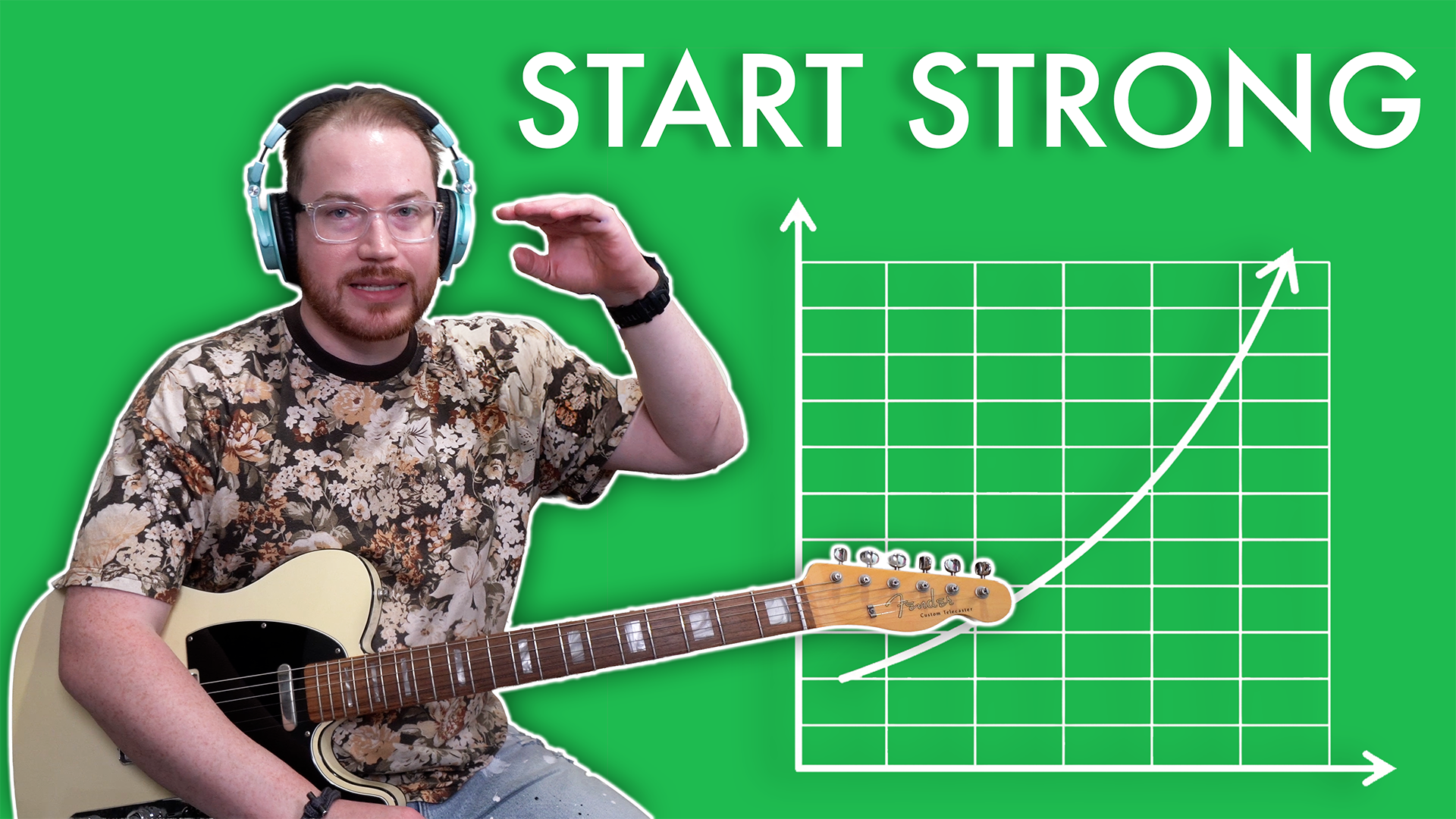A better way to set goals for your guitar practice
The problem with traditional goal-setting
A lot of guitarists set objectives around achieving specific things: learning a certain song, mastering a scale, or nailing a technique. These kinds of goals can be useful in situations when there’s a deadline—like preparing for a performance or recording session—but, most guitar players aren’t working under this kind of time pressure.
For those of us learning guitar as a lifelong pursuit, putting arbitrary deadlines on progress can actually be counterproductive.
Life happens.
Some weeks, you won’t be able to practice. And when you inevitably miss a goal’s deadline, it can lead to unnecessary frustration.
The reality is that no one is holding you to that deadline except yourself. And if you fall behind because of legitimate reasons, it doesn’t actually matter. So, if we’re not going to set goals around deadlines, how can we set achievable goals for our guitar practice?
Set goals around consistency
Instead of focusing on achieving specific milestones by a certain date, set goals that emphasize consistent practice.
Here are two simple but powerful guidelines to help with this:
Never take more than two days off in a row for any aspect of your practice.
Aim to practice each aspect of your playing at least four days a week.
How this works in practice
Say you’re working on three areas of practice:
Chords
Scales
Pieces
If one day you practice chords and scales but don’t have time for your pieces, that’s fine. The next day, maybe you don’t have time to practice at all. Now you’ve gone two days without working on pieces, so the following day, you must prioritize them. If you miss your chords and scales that day, you make sure to get them in the next session.
The goal isn’t perfection—it’s consistency over time.
These guidelines ensure that you maintain momentum without feeling overwhelmed.
Give yourself a grade
A great way to measure consistency is to track the percentage of days practiced throughout the year.
Instead of focusing on hard deadlines, ask yourself: what percentage of days do I want to have practiced by the end of the year? I think 75% is a good target. That gives you allows for life to happen and is still a fantastic achievement!
If you enjoy tracking data, you could use a spreadsheet to log your practice and calculate your progress over the year. But even if you don’t track every session, simply keeping the the two guidelines in mind (don't miss more than two days in a row and practice at least four days a week) will keep your playing on track.
Why this approach works
This kind of goal-setting focuses on process rather than outcome. The specifics of what you practice—whether it’s a certain piece, scale, or technique—can change over time.
What matters is maintaining the habit.
And if life gets in the way and you miss an entire week? You haven’t failed. Just pick your guitar back up and keep going. The goal is to build a sustainable practice routine, not one where you will feel bad for missing a day.



